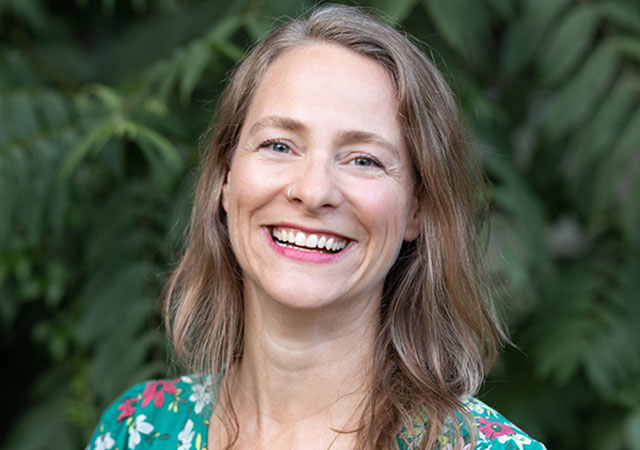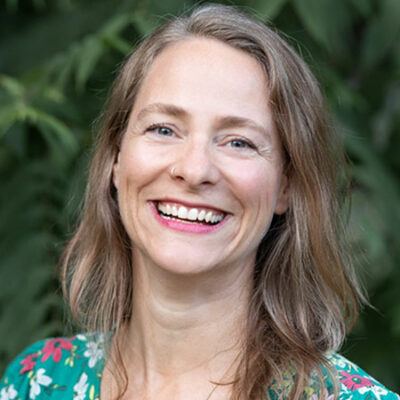Brave Inquiry: Expanding Trauma-Informed Methods

Brave Inquiry: Expanding Trauma Informed Methods Through Embodiment, Dynamic Consent, and Touch
with Cheri Dostal Ryba
Just 1 spot left!
Dates: Sat-Sun, November 2-3, 2024
Times: 10:00am – 5:30pm daily w/90 min lunch
CEs for C-IAYTs 12
Location: LIVE at Devanadi Yoga – 4401 Upton Ave S, Minneapolis, MN 55410
Cost: $250 ($300 after Sept 15)
Cost – Devanadi 235/340hr YTT Alumni: $225 ($275 after Sept 15)
Please read our Cancellation Policy below before registering.
Training Description
NOTE: This training is IN PERSON, on purpose, and these are skills we gain by getting in the room. Skills that can’t be practiced with virtual, on demand offerings.
Brave Inquiry offers a live training that brings participants the real time benefits of rich discussions, tangible connection, keen observation, and practical skills in facilitating embodied yoga. We seek increased agency, interoception, movement skill, and right relationship with a foundation of ethical, therapeutic alliance. Proximity and touch give meaningful and effective ways to communicate qualities that cannot be delivered succinctly in verbal instructions or visual demonstrations alone. Interoception and touch dramatically enhance this somatic vocabulary, and aid in developing personal and interpersonal wisdom.
This course assists yoga professionals at all stages of their career in establishing an informed consent culture in their teaching practice and organizations. As allegations of abuse in yoga have become more publicly disclosed, it’s important that we understand the prevalence of these experiences and dismantle the power dynamics and structures, overt and subtle, that cause harm, and how we move toward repair.
In response, we’ve found many new ways to attempt to establish consent, and weave the ethics of yoga into asana offerings. Participants will discuss the advantages and limits of these current methods, and learn a living model that can be applied to all teaching settings and student interactions. The Brave Inquiry training aims to prevent us from falling into an unchecked duality – broad policies of ‘no touch ever,’ intentions to touch every student each class, nor to give mechanical ‘hard adjustments’ or ‘assists’ devoid of dialogue and active sensing between teacher and student. We investigate the ‘messy middle’ to restore self-trust and build capacity to open to the inherent, sacred intimacy of practicing and sharing yoga.
We need, and consumers now expect, more discerning, mature yoga professionals who hold powerful space for uncertainty and choice, and who can facilitate lasting embodiment skills. The somatic and relational awareness acquired in this training will benefit your communication, boundaries, energy management, and quality of life.
We’ll hold both personal process and professional responsibility throughout Brave Inquiry to become more integrated, genuine, confident practitioners. This in person training is not to be missed!
“The highlight of the training weekend for me was learning about how a teacher can use touch without actually touching – cueing for self-touch or using props creatively instead.”
MODULE ONE
Resource: Creating Conditions for a Reparative Culture
TOPICS INCLUDE: personal embodiment as foundational to teaching; why brave inquiry over safe space; establishing ‘safety’ and honing our instincts as a shared responsibility; understanding the nervous system through polyvagal theory; autonomic mapping; differentiating terms like stress, trauma, trigger, hurt and harm; limits to our scope; defining types of somatic perception and 3 main learning styles; svadhyaya around stress, teaching, and touch
MODULE TWO
Non-Touch Toolkit: Facilitating Interoception and Self-Touch
TOPICS INCLUDE: The 6 purposes of touch and the non-touch toolkit; guidelines for using imagery to enhance cues; what is a somatic inquiry and practice facilitating a somatic inquiry within an asana sequence; group guided practices; discussion and integration
MODULE THREE
Active Ahimsa: Unpacking Systems and Methods
TOPICS INCLUDE: Unpacking peer and power dynamics, higher allegiances, acknowledging systemic forces; what is consent; 3 keys to dynamic consent; sharing best practices and crafting inquiry based teaching; reviewing foundational trauma informed principles, advantages and limits
MODULE FOUR
Making Contact: Consent in Action and Asana Applications for Touch
TOPICS INCLUDE: The 3 parts of all interactions; advantages and limits to group and private contexts; identifying goals and tracking progress in student’s self-efficacy, learning and embodiment; guidelines on how to touch and why; what to avoid with respect to scope of practice; closing circle.
“One of my favorite training weekends so far! I made major progress in my own healing and this workshop has given me the guidance and courage to explore healthy touch.”
Pre-requisite
For those with minimum 6 months or 1 year practicing yoga, yoga teachers of all experience levels, and yoga therapists all interested in the following:
- Exchange rote memorization of asana cues and prescriptive instructions and learn to artfully create conditions for functional exploration, where students truly learn how to listen to their body to find their best alignment and increase their movement skills, agency, and capacity;
- Take consent concepts beyond written disclaimers, generalized hand raising, and colored flip cards into an embodied, practical conversation where possibility, growth and insight live;
- Be an active participant in dynamic conversations, live practice and hands on demonstrations, and establish and refine your skills in facilitating the embodiment of yoga and using touch therapeutically.
Want Continuing Education (CE) credit?
CEs: 12 with IAYT for Certified Yoga Therapists
Course is approved with IAYT. To earn CEs, students must attend all scheduled contact hours. Certificate of Completion emailed upon completion.
Notes:
- Please read our Cancellation Policy before registering.
- Please bring your yoga mat and props, and something to sit on if needed.
- Please also bring a notebook and pen.
- Lunch break is 90 min on Saturday and Sunday. There are many local restaurants nearby, or bring a lunch as we have a kitchen on-site.
Cancellation Policy
No refunds. Credits, less a cancellation fee of $50, given 14 or more days before the class begins. No credits within 14 days. No shows receive no credit.
SIGN UPProgram Teachers

Cheri Dostal Ryba
C-IAYT
